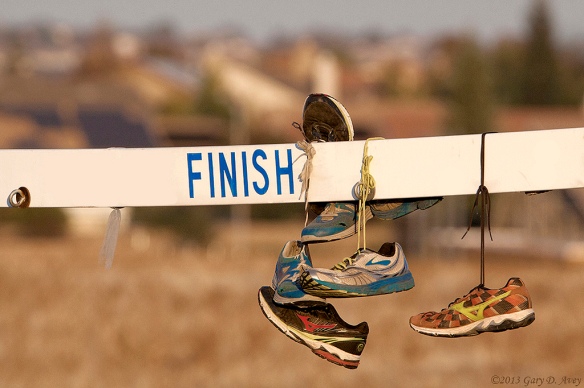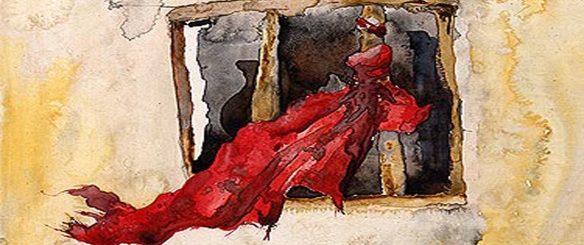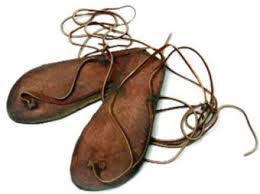
Finish Line.
Friends and family line the edges of the finish chute roaring encouragements, waving flags, rattling cowbells. Gaining strength for the final few hundred metres, the runners gather their remaining strength and push for the finish line. Some sprint. Some hobble. Some do little more than crawl. All give everything they have to cross the line.
This scene has been repeated countless times at competitive events in the modern world—marathons, triathlons, even jog/walk/push and drag fundraisers. We know the importance of the finish line.
The author of Hebrews concludes his eleventh chapter treatise on men and women of faith by picturing their lives as a kind of a relay race; a race in which the likes of Abraham, Isaac and Jacob who have finished their portion of the race look on like a cloud of witnesses and fans over those of us still plodding on; a race not finished until the whole team has run; a race in which the trainer Himself has set the pace, endured the most difficult leg of the course, and cheers on the runners with loudest voice.
“These were all commended for their faith,” the author summarizes,” yet none of them received what had been promised. God had planned something better for us so that only together with us would they be made perfect.”
Something unusual has happened. Hear it? Only together with us, he writes. The amazing lives of the heroes of the faith, of Abraham and Sarah, Joshua, Rahab and others are somehow teamed with ours. They ran first, but they carried a baton of faith that they reached out to pass on to people no different than you and me. They were not perfect; they experienced the same dichotomy of wanting to do right while finding themselves lying, lusting, doubting and disobeying, just as we do. They did their best but they never deserved to have statues of themselves raised. Nor do we. God knows the core problem of every one of us is our sin-infected human nature. We are not inherently good, though we long to be. But there is hope.
God, who longs for us to be good more than we do—to run the race well—solves the problem. He comes into our world as a human baby named Jesus, lives the perfect life we ought to live, and chooses to die a significant death to pay the debt our godless rebellion has earned us. Then He rises from His grave, victor over not only His own death but Death itself and offers His relay team the same victory when the race is finally done. Not only that, but the perfect sacrifice of God ultimately makes possible the future perfection of human lives. People who want to receive this gift must have faith and thereby enter into the community of faith. This is the body of believers who make up what the writer of Hebrews pictures as the relay team.
“Therefore,” concludes Hebrews’ ‘Hall of Faith’, “since we are surrounded by such a great cloud of witnesses, let us throw off everything that hinders, and the sin that so easily entangles, and let us run with perseverance the race marked out for us. Let us fix our eyes on Jesus, the author and perfector of our faith, who for the joy set before Him endured the cross, scorning its shame, and sat down at the right hand of the throne of God.”
The call is to focus on Jesus. This has always been the call of God toward people who would become women and men of faith. Some had to look forward to the future of Jesus’ incarnation, others lived alongside Him, and many—like you and me—have poured back over the pages of God’s Word to meet Him. Yet we all fix our eyes on Him and listen carefully to His commands in order to run our leg of the relay well. We are called not to become weary or lose heart when the way is hard—terribly hard. We are to endure hardship as the surest way to developing the holy character traits of Jesus, traits that will enable us to move the baton forward into the next set of waiting hands.
So be encouraged. Stay in the race (or join it today). The finish line will come, all in good time.
(Photo Credit: Gary D. Avey)


